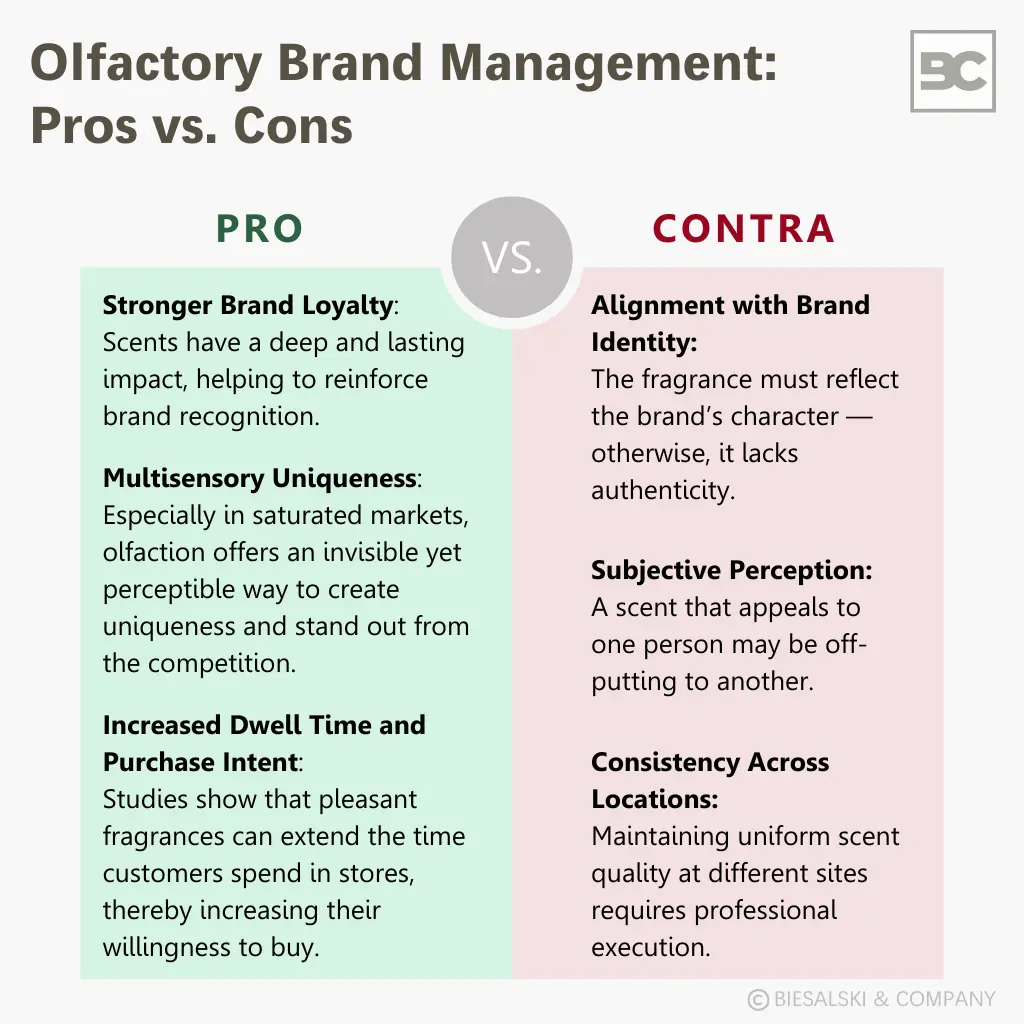Olfactorics of brands
What does olfaction mean?
Olfaction refers to the strategic use of scents to influence how a brand is perceived, preferred, and remembered. As part of a multisensory brand strategy, it aims to emotionally enhance the brand experience through the sense of smell and to make the brand more recognisable.
This approach contributes to the emotional positioning of a brand by embedding it in the sensory memory of the target group.
Significance and Impact of Olfaction
The sense of smell (olfactory system) is closely linked to the brain’s centres for emotion and memory. Unlike visual or auditory stimuli, scents often act subconsciously — yet they trigger a powerful emotional response. Olfaction can:
Activate memories, such as associations with places or personal experiences,
Influence moods, for example by inducing relaxation or alertness,
Enhance purchasing behaviour by creating a feel-good atmosphere,
Increase brand recognition, particularly in direct interaction with the product or service.
By tapping into these emotional and associative mechanisms, olfaction serves as a highly effective element in building emotional brand equity.
Practical Examples of Olfactory Brand Management
Within brand strategy, olfaction serves to create emotional uniqueness. This is achieved through the development of a distinctive scent (Corporate Scent) that reflects the brand identity and can be experienced across as many brand touchpoints as possible.
Examples of strategic scent deployment in brand management include:
Singapore Airlines:
The airline uses a bespoke fragrance called “Stefan Floridian Waters”, applied in the aircraft cabin, on onboard materials, and even integrated into staff uniforms. The scent conveys exclusivity, calm, and Asian hospitality—key values that define the brand.Abercrombie & Fitch:
The retail stores are renowned for their signature scent Fierce, which is carefully tailored to appeal to the brand’s young, style-conscious target group. The fragrance plays a key role in shaping the brand’s identity and customer experience.Westin Hotels & Resorts:
The hotel chain employs a unique signature scent across all its global locations. The fragrance fosters a consistent, homely atmosphere that reinforces the brand’s promise—“a sense of coming home”—regardless of the guest’s destination.
Olfaction can be a powerful tool in strategic brand management. A well-designed brand scent strengthens emotional brand attachment, enriches the brand experience, and contributes to sustainable differentiation in a competitive environment.
Advantages vs. Challenges of Olfactory Branding












